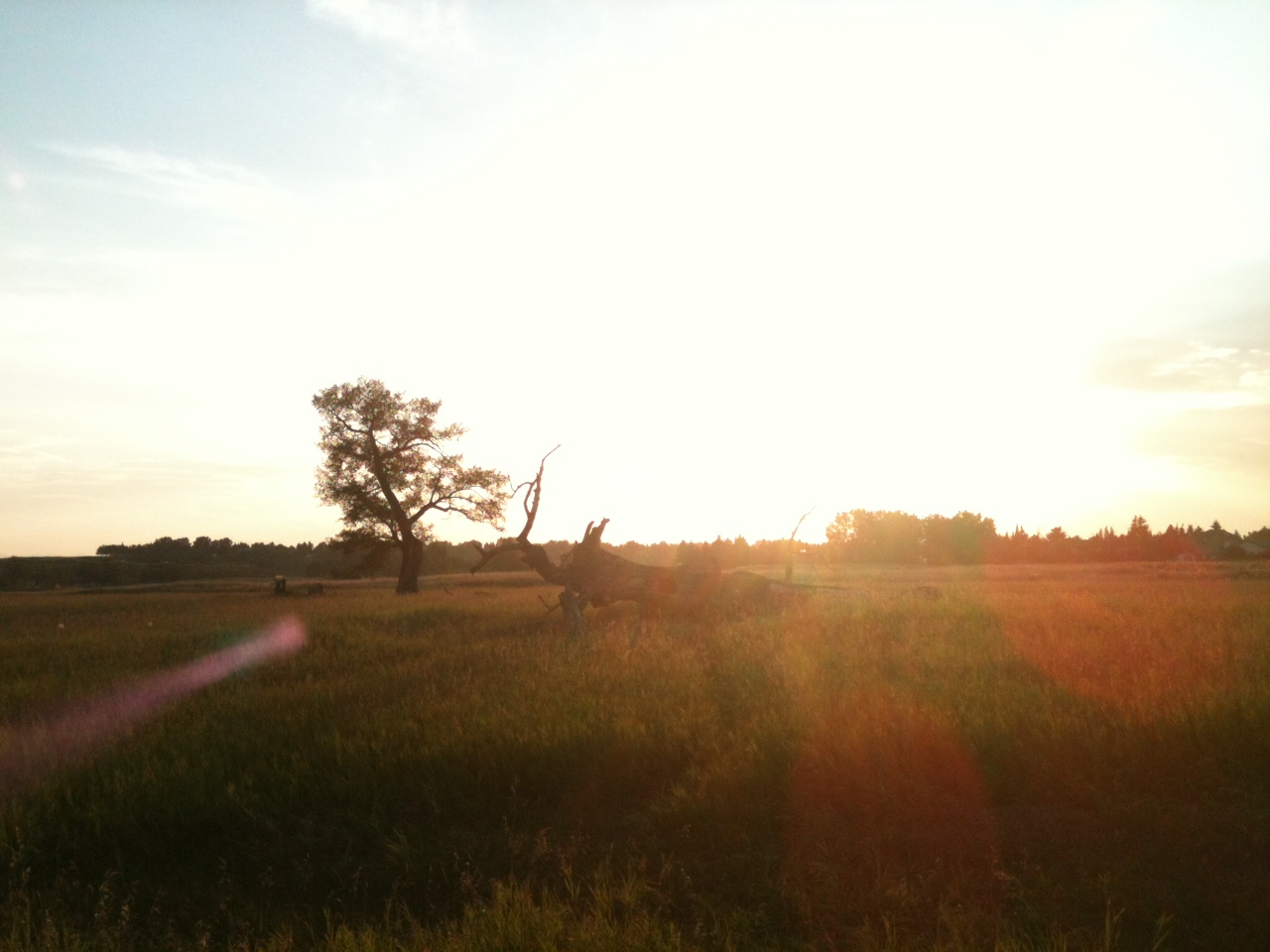Wild Foods in the Urban Economy
Wild Foods in the Urban Economy

CALGARY—The landscape of food cultivation in Canada is changing. Economists predict an increase in food prices next year across Canada as the United States economy continues to decline. Wild foods harvesting is one of the many ways by which people across the country are confronting the current economic downturn and reclaiming their health sovereignty.
Despite Calgary Parks and Pathways Bylaw 20M2003, which prohibits wild foods harvesting by virtue of prohibiting any act to intentionally “damage, dig, cut, disturb or destroy any park vegetation, whether alive or dead,” there is a growing interest in wild foods harvesting.
Calgary Food Bank runs a wild game outreach program for schools. Piitoayis (Eagle Lodge) Family School located in southeast Calgary uses the program to educate K-6 students about Aboriginal traditions of wild game. “Calgary Food Bank received a number of inquiries from Aboriginal people requesting wild game meat with respect to their cultural traditions,” Calgary Food Bank Communications Coordinator Kathryn Sim told The Dominion regarding the initial interest to support a wild meat program. “We seek to provide a diversity of foods.”
There are numerous other projects in Calgary redefining the food-scape. Leaf Ninjas, a successful Small Plot Intensive (SPIN) urban farming initiative; and The Light Cellar, a raw superfoods specialty store, are engaging more youth in permaculture and wild foods harvesting is having a greater role in fostering local economic sustainability.
Daniel Vitalis, a leading health and personal development strategist, explains how wild foods are not limited to solid foods, but also include fresh spring water, air and sunlight. “It's easy to think of the food we eat as nutrition. It's a little bit more of a stretch for people to realize the water they drink is nutrition...now I want you to understand that your air is part of your nutrition,” said Vitalis. “We also need light to regulate a whole lot of our systems.”
“The economic system will decline on itself, so it is first necessary to live independently,” said Vitalis during his recent series of speaking engagements in Calgary. “We can develop food sovereignty by connecting with our local foodshed—food producers. This is about learning how to take care of your physical body in a new way.”
Urban farmer, gardener and Leaf Ninjas founder Luke Kimmel leads the initiative into its second year. Also at work on urban permaculture projects such as building shelter belts, Leaf Ninjas is active year–round, networking through community engagement events on their website. “Every time we pay for something, we give it value,” Kimmel told The Dominion. “Bringing wild foods into the urban economy is a way to give economic value to wild foods.”
Bylaw 20M2003 is “mutually disregarded by both wild food harvesters and local politicians,” says Kimmel. Employing the right to harvest local wild foods in Canadian cities is not futile. “Basically, that bylaw can be ignored,” says Kimmel. “People need to have access to their local food.”
Kimmel also shared with The Dominion many permaculture-savvy ways to engender wild nutrition activism in the city. “By using the seeds from plants that grow in the city as weeds, such as orach, I gather the seeds and plant them in my plots. Another way is by guerrilla gardening, where you can plant seed anywhere in any green space on public property,” says Kimmel.
In Canadian cities, young farmers are as rare as wild foods harvesters. “There are individuals who currently practice wild foods harvesting as their main or complementary economic activity. In Alberta, the chaga mushroom, which grows particularly in the boreal forests, has seen an upsurge in harvesting and trade,” says Kimmel.
“The city or municipality should have no say in what individuals harvest and trade,” says Vitalis. “The rule of law is not just the laws written down by legislatures—it's the idea of a contract that exists between individuals.”
“People are disconnected from their food source,” Calgary local foods enthusiast Rogelio Lozano told The Dominion. The most recent survey conducted by Leger Marketing indicates that over 90 per cent of the Canadian population wants mandatory labeling of genetically modified (GM) food.
Calgary Harvest donates one third of fruit harvested from fruit trees on homeowner property to Calgary Food Bank. It is also accepting wild game donations starting this year. “Calgary Food Bank plans to issue notices to all hunters renewing and receiving licenses about donating wild game beginning in January 2013,” says Sim.
Matt Hanson is a creative writer, whose works have appeared in over thirty independent literary publications across Canada, the US and the UK.

